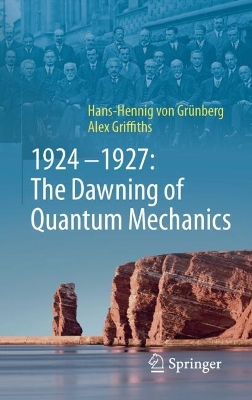In June of 1925, almost a hundred years ago, Werner Heisenberg spent ten days on the island of Heligoland - thanks to his hayfever. This respite afforded him the time to write an article that would mark the beginning of the history of modern quantum theory. Two years later, in October of 1927, the fifth Solvay Conference, arguably the most famous gathering in the history of physics, took place in Brussels, bringing the riveting story of the origins of quantum mechanics to a close. During this crucial and relatively short period between 1925 and 1927, eight physicists from five countries developed a theory that would radically change the physical understanding of our world and would become the basis for almost all advanced technologies: transistors, lasers, light-emitting diodes, medical imaging, the electron microscope and much more.
The reader will travel through time from September 1924 to October 1927 and learn by way of monthly entries how quantum mechanics came into being, what the people involved experienced and thought in the context of the time they lived in, and how a unified whole slowly emerged from the interactions of these individuals.
The book is aimed at laypeople who are fascinated by quantum mechanics and its history. They will learn that this theory, like Anita Berber, jazz or the invention of television, is a characteristic child of the 1920s.
- ISBN13 9783662700440
- Publish Date 14 November 2024
- Publish Status Active
- Publish Country DE
- Publisher Springer-Verlag Berlin and Heidelberg GmbH & Co. KG
- Imprint Springer-Verlag Berlin and Heidelberg GmbH & Co. K
- Edition 2024 ed.
- Format Hardcover
- Pages 259
- Language English
